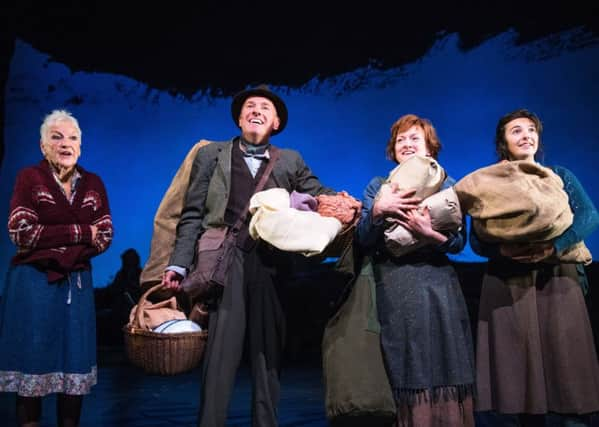Theatre review: The Yellow On The Broom, Dundee Rep


Theatre review: The Yellow On The Broom, Dundee Rep ****
The early part of Anne Down’s play is devoted to introducing us to this rhythm and making us feel it in our bones, along with the intense pride and code of morality that came with the much-maligned traveller culture, its magnificent heritage of songs and storytelling, and the hard cutting edge of the bitter prejudice and hostility to which travellers have been subjected by settled folk from time immemorial.
In Andrew Panton’s new Dundee production, all of this is played out with a wonderful, eloquent fluency by a nine-strong company of actor-musicians on the rock-fringed open space of Kenneth MacLeod’s set. Chiara Sparkes gives a heartbreakingly fine performance as young Bessie, Beth Marshall is superb as her mother, devoted to the travelling life; and Ann Louise Ross is magnificent as the older Bessie, looking back on her glorious childhood, and taking the audience with her into that world.
Advertisement
Hide AdAmong them, this fine ensemble succeed in capturing both the joy of the world Bessie remembers, and the shadows that lengthened over it in the late 1930s, when rumours began to arrive of Hitler herding gypsies and travellers, along with others, into what were to become his death camps.
As the audience gathers its own memories, and begins to join in the songs, they also capture the sweet, sorrowful undertow of the show’s second elegy, the saddest of all; the lament for the glorious unspoiled landscape of fields, hills, burns and moorlands – teeming with pristine springs of water, berries and wildlife – where Betsy Whyte grew up, and which, given the ever-heavier hand of humankind on the earth, has now effectively disappeared, perhaps for good. - JOYCE McMILLAN
Until 22 September